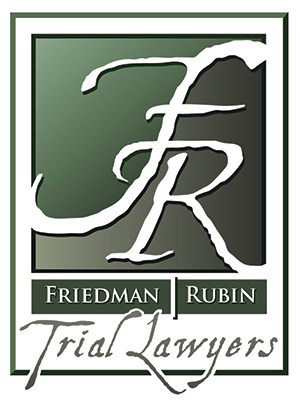District Court Prohibits Insurer From Claiming Policyholder’s Disability was Caused by Sickness
Los Angeles, CA
Following a skiing accident in March of 1995 and orthopedic surgery in 1996, Dr. Stephen J. August found himself unable to perform as an eye surgeon due to a loss of proprioception in his hands. He had no choice but to wind down and close his medical practice. Fortunately, he had maintained disability insurance since 1980 that would replace at least a portion of his lost earnings. Moreover, his policy with Provident Health & Life Insurance Co. (a Unum Group company) provided for lifetime benefits if the disability was caused by an accident, but only until age 65 if due to sickness or disease.
In January of 1997 Dr. August submitted his claim to Provident, indicating on his claim forms that his disability was caused by the ski accident. The surgeon who operated on Dr. August also submitted forms certifying the ski accident as the cause of disability. Following an investigation into the accident claim and the extent of his disability, the company began paying full benefits without any reservation of rights or any assertion that the company had only accepted the claim based on the sickness provision of the policy. Benefits were paid for the next ten years, largely without incident. However, as Dr. August approached his 65th birthday, the company asserted, without explanation, that his benefits were ending at age 65. When Dr. August pressed the company for an explanation, the Unum adjuster explained that his claim had been “administered under the sickness provision” of his policy (even though he was never told of this) and that therefore benefits would terminate at age 65. When Dr. August protested that his disability was caused by an accident, the company promptly lined up its in-house doctor, Joel W. Saks, M.D., to opine that Dr. August’s condition was in fact caused by sickness rather than accident. When Dr. August appealed the initial denial, the company brought in two more in-house doctors, Charles Sternbergh, M.D. and Richard Tyler, M.D., to support Dr. Sak’s opinion. Dr. August’s benefits were terminated on his 65th birthday.
Dr. August went in search of experienced legal counsel and was referred to Friedman | Rubin. On March 23, 2009, the firm brought suit on behalf of Dr. August in U.S. District for the Central District of California alleging breach of contract and bad faith, seeking policy benefits, general and punitive damages. Following more than a year of intense discovery, FR moved for summary judgment on the contract claim contending that Provident and Unum should be estopped from asserting a “sickness” defense given their ten year silence and payment of benefits without any reservation or qualification. The District Court, Dolly M. Gee presiding, granted the motion, issuing a strongly worded 22-page opinion concluding as follows:
It is undisputed in this case that Defendants failed to promptly provide information to Plaintiff necessary for him to protect his right to bargained-for benefits under the Policy. To allow Defendants now to defend against Plaintiffs breach of contract claim on the basis of their 2007 sickness determination would be “intolerably unfair” in light of their more than ten-year silence. For ten years, Plaintiff reasonably believed that Defendants accepted his claim, which he submitted on the basis of an accident, and was not notified by Defendants of any reason to believe otherwise.
[E]ven when viewing the evidence in the light most favorable to Defendants, the Court finds incontrovertible evidence that Defendants’ dilatory conduct caused Plaintiff to suffer a disadvantage and that Defendants should not be permitted to exploit the disadvantage they inflicted on Plaintiff.
August v. Provident Life & Acc. Ins. Co., CV09-01951 DMG SHX, ___F.Supp.___, 2011 WL 1097461 (C.D. Cal. Mar. 23, 2011).
Following the Court’s decision, Dr. August’s benefits have been reinstated. More importantly, with breach of contract established as a matter of law, the issues for the upcoming jury trial have been narrowed to consideration of the insurer’s bad faith, compensatory and punitive damages. The Federal Court decision also has important implications for other Provident and Unum policyholders with similar accident/sickness provisions in their policies. The decision establishes that insurers may not secretly administer a claim under the sickness provision, nor may they seek to determine that issue long after an accident claim is submitted.
Rick Friedman, James Hertz and Henry Jones of Friedman | Rubin and Mike Bidart of Shernoff, Bidart, Echeverria LLP, are counsel of record for Dr. Stephen J. August in the pending action.
